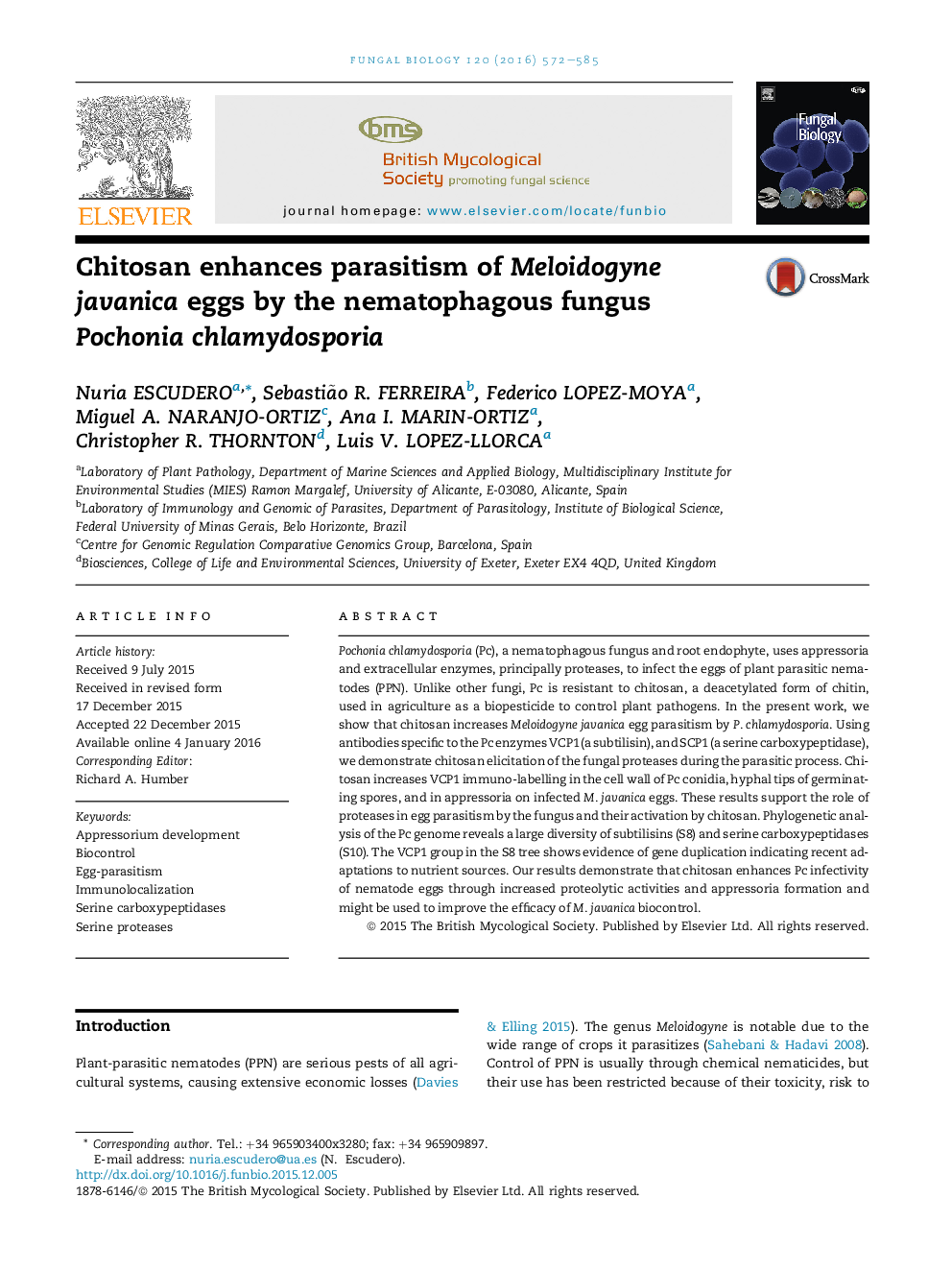| کد مقاله | کد نشریه | سال انتشار | مقاله انگلیسی | نسخه تمام متن |
|---|---|---|---|---|
| 6287803 | 1299991 | 2016 | 14 صفحه PDF | دانلود رایگان |

- Chitosan increases appressorium differentiation in Pochonia chlamydosporia.
- Chitosan enhances P. chlamydosporia parasitism of Meloidogyne javanica eggs and the VCP1 immuno-labelling in infected eggs.
- Proteolytic activity of P. chlamydosporia is higher in the presence of chitosan.
- Chitosan enhances the VCP1 immuno-labelling in infected eggs.
- We have found evidences of expansion and diversification of P. chlamydosporia serine proteases.
Pochonia chlamydosporia (Pc), a nematophagous fungus and root endophyte, uses appressoria and extracellular enzymes, principally proteases, to infect the eggs of plant parasitic nematodes (PPN). Unlike other fungi, Pc is resistant to chitosan, a deacetylated form of chitin, used in agriculture as a biopesticide to control plant pathogens. In the present work, we show that chitosan increases Meloidogyne javanica egg parasitism by P. chlamydosporia. Using antibodies specific to the Pc enzymes VCP1 (a subtilisin), and SCP1 (a serine carboxypeptidase), we demonstrate chitosan elicitation of the fungal proteases during the parasitic process. Chitosan increases VCP1 immuno-labelling in the cell wall of Pc conidia, hyphal tips of germinating spores, and in appressoria on infected M. javanica eggs. These results support the role of proteases in egg parasitism by the fungus and their activation by chitosan. Phylogenetic analysis of the Pc genome reveals a large diversity of subtilisins (S8) and serine carboxypeptidases (S10). The VCP1 group in the S8 tree shows evidence of gene duplication indicating recent adaptations to nutrient sources. Our results demonstrate that chitosan enhances Pc infectivity of nematode eggs through increased proteolytic activities and appressoria formation and might be used to improve the efficacy of M. javanica biocontrol.
Journal: Fungal Biology - Volume 120, Issue 4, April 2016, Pages 572-585